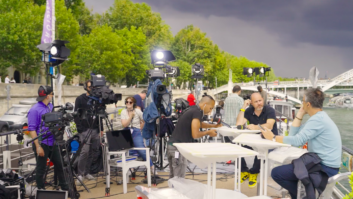
Back in April, Twitter secured the $10 million rights to broadcast ten Thursday night NFL games online, free of charge. What made the move so ground-breaking was the ease in which a non-sports platform suddenly snapped up the rights to air the biggest sport in the US. Bearing in mind, of course, that the pinnacle of the social media company’s sporting content prior to this was Boring James Milner and the occasional rant from Piers Morgan. Publicity stunt, or statement of intent?
Fellow social media giant Facebook launched Live in August last year, initially limited to celebrities and other verified Facebook users, such as journalists. By Christmas, however, it had rolled out the feature to the general public. Usage has been gathering pace ever since, and, considering its interest in purchasing the NFL rights before Twitter swooped, it appears its video content is going only one way: traditional broadcast.
But where has this sudden interest come from? When did the crosshairs begin to focus on video?
Gareth Capon, CEO of Grabyo, announced as an official live streaming partner of Facebook at the F8 Conference in April, explains: “(With Live) Facebook have found that they’re generating more engagement, interactivity and sharing that they have with other formats. They’ve doubled down their efforts on providing the capabilities for partners to go live stream into Facebook to create new audiences and new engagement and utilise the vast audience on that platform to be able to distribute the content very quickly to hundreds of thousands, if not millions, of people.”
Football rights: worth every penny?
The war for Premier League coverage rages on, and, despite jumping from £2.79 million per game in 1997 to a whopping £11.07 million per game for the upcoming 2016-17 season, the rising price tag shows no signs of slowing.
Despite this, Google secured a deal with BT in May to broadcast the 2016 Europa League and Champions League finals free via YouTube.
The digital giant has previously shown no signs of wishing to partake in the live sports market, but this move suggests a change in strategy.
However, speaking at the DTG Summit in May, Stephen Nuttall, senior director of EMEA for YouTube, moved to quash the idea of competing in the sports market, stating, “We are not a buyer of rights. We are very good at distributing content to the largest possible audience. We are a technology company, we do a great job of creating tools that broadcasters can use to tell their stories to largest possible engaged audience. That is what I expect we will continue to focus on. Our whole model is about partnering with people to allow them to make the greatest possible success out of their content.”
Regardless of YouTube’s stance on competing directly, it does pose the question; if Facebook, Twitter and YouTube can generate the same kind of audiences on their platforms as any pay-TV channel (and they can), why bother investing in much more expensive television broadcasts?
Securing global rights and monetisation, it would seem, are two stumbling blocks.
Capon adds, “The challenge is that it needs to be new, bespoke, rights unrestricted content. The content goes out and it’s available for free. There are no very clear monetisation models around this yet, other than tagging branded videos.
Such deals, then, may be mere experiment: probes to gauge popularity with viewers.
Capon explains, “It’s such an interesting way of sharing live feeds. It’s promoted quite heavily within the Facebook newsfeed, so the opportunity for you to see that is quite high. The chance of you joining the stream is greater; that’s what’s different and what is not even possible in the traditional OTT or TV environment.
Euro 2016: the last TV-exclusive?
With such large sporting events hitting the small screen in 2016, it appears likely that the recent European Championships in France will be the last major international football tournament to air exclusively on television.
Dror Ginzberg, co-founder and CEO of Wochit, says, “Despite BT Sport paying a record £897 million for Champions League and Europa League TV rights, it made the unprecedented move to partner with YouTube to air both finals for free.
“Combining traditional TV with online platforms will give UEFA and FIFA, the powerbrokers of football, an unprecedented opportunity to earn much more revenue from rights selling, while also opening the door to a host of new commercial opportunities. It is really now only a matter of time until we see future European Championships and World Cups online.”
All it all, it’s safe to say that the digital revolution has left TV fragmented, and rights deals in a tangled mess. In the long term, however, viewers have the power. If Facebook continues to host billions of users on a day-to-day basis, then it’s surely only a matter of time before mainstream content, whether in rivalry or collaboration, begins to filter through onto social media.
With such varied expert views and hypothetical scenarios, it would appear we can arrive only at that frustrating, age-old conclusion: time will tell. One thing is certain: as long as these emerging platforms have a say on the matter, Sky is most certainly not the limit.







